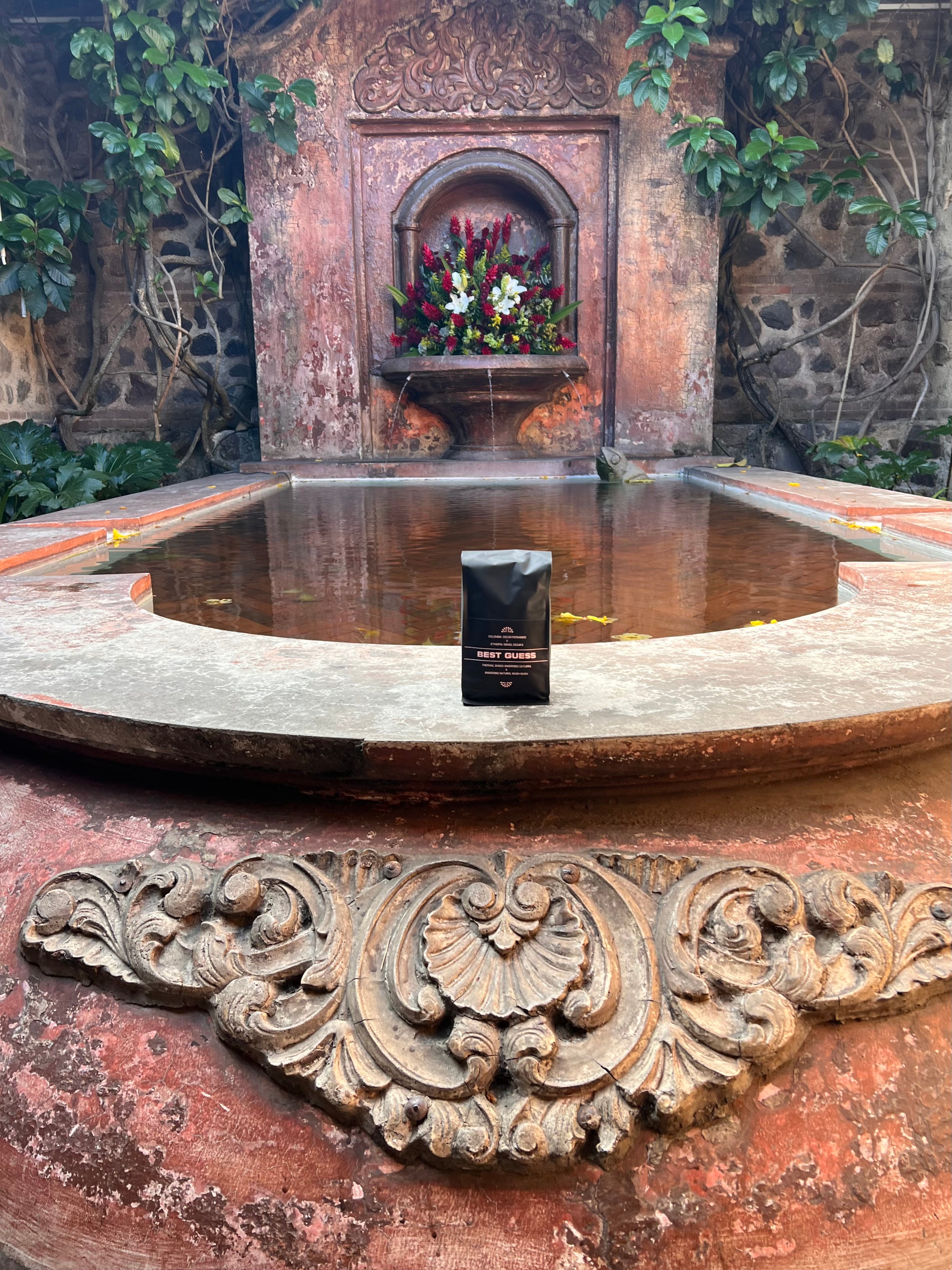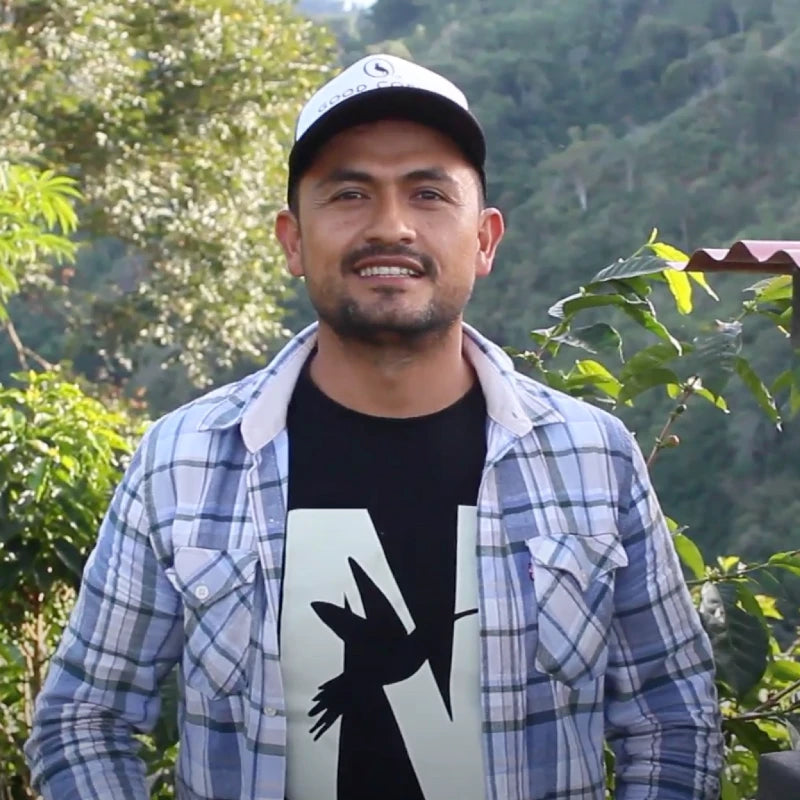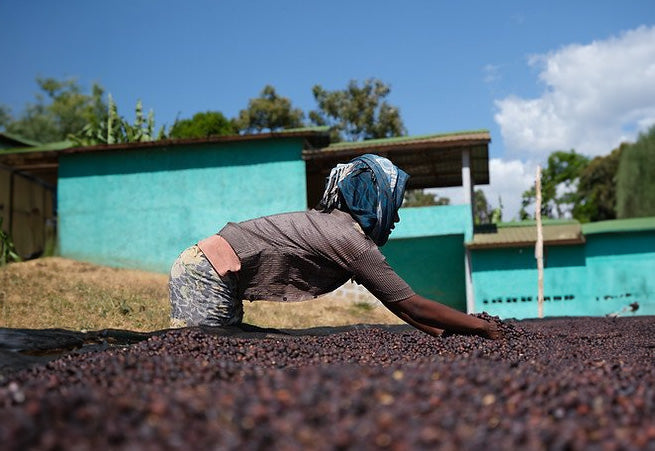Mango, Blueberry, Passion Fruit, Strawberry, Banana, Lime
Intense, Fruit Bomb, Tart, Sweet, Syrupy
Head Roaster, Bryan:
"When we set out to find suitable coffees for the competition, I initially only considered using single origins for each category. I selected four different coffees that I felt could potentially do well in competition and roasted each coffee four different ways, for a total of sixteen different samples on the initial cupping table. While roasting, I chose to isolate a few variables, including charge temperature, fan speed, and to an extent finishing temperature. Primarily I was focused on varying the ratio of drying time and Maillard time. Development time was kept fairly consistent, however the development percentage would change rather dramatically based on the ratio of the other two phases. I chose to not pay attention to or subscribe to the notion that I needed to hit specific development percentages, and instead I let my nose be my guide as I approached and moved through first crack, pulling the trier every 5 seconds. In the end I roasted 18 different batches, with two of them being dismissed for missed marks verses my intended profiles.
Our initial analysis was done on the cupping table. One coffee was rather quickly dismissed due to its lack of wow factor, for lack of a better term. We found ourselves describing the coffee as “too approachable,” and felt it might not score high in the competition. Ironically, this is probably my favorite coffee in our offerings right now, but I just felt it would not blow judges away amongst a sea of the best coffees in the world.
Two other coffees were extremely similar, with one scoring just a bit higher, and so we decided to eliminate the lower scoring option.
With the final two coffees, we evaluated them on the cupping table, as filter coffee at two different brew ratios per sample, and as espresso according to the parameters of the espressos being brewed in competition.
In each instance, we kept feeling that we might end up with a blend, and eventually we did, with three different ratios and 3 different amounts of rest depending on the intended brewing application.
The first coffee that we selected was a naturally processed Colombian caturra grown by the Hernández family on their farm Los Nogales. We receive this coffee through our friends at Forest Green Coffee, who have provided many roasters the coffee to earn many medals in this competition. The coffee cherries are picked, density-sorted, thermally shocked, anaerobically fermented for 96 hours with mosto, dried for two days in mechanical driers, then stabilized for 15 days in GrainPro. The result is a cup bursting with tropical flavors like mango and passion fruit, banana, lime, and a hint of rose through the finish. There is persistent sweet chocolate flavor from start to finish.
The second coffee we chose is a natural process Ethiopian Wush Wush grown by Israel Degefa on his Bale Mountain farm. This coffee is a perennial powerhouse for us, but this year in particular we were lucky enough to secure a very small selection of cherries that were anaerobically fermented for a full 120 hours. This incredible coffee was offered to us through our partnership with Keffa Coffee. Every year this is one of the most popular coffees we offer, boasting explosive berry flavors such as strawberry and blueberry, along with a perfumed molasses-like note, and sweetness so intense it is almost overwhelming. The textbook example of a “fruit bomb” coffee in every sense of the term.
We ended up with a ratio of three parts coffee from the Hernandez family and one part coffee from Mr. Degefa. As a single origin, the Colombian coffee seemed just ever so slightly hollow, lacking a bit of sweetness and body. However when paired with the intense, syrupy sweetness of the Ethiopian coffee, we felt they complimented each other perfectly without either coffee washing out the other one."
This is a coffee for the ages. It will be remembered amongst our customers for years to come. Don't miss out on this very limited offering!
COUNTRIES: Colombia; Ethiopia
REGIONS: Pitalito, Huila; Anasora, Oromia
ELEVATIONS: 6400 ft; 7550 ft
PRODUCERS: Hernandez Family (Oscar Fernando); Israel Degefa
PROCESSES: Thermal Shock, 96 Hour Anaerobic, Mosto Inoculation, Natural;
96 Hour Anaerobic, Natural
VARIETALS: Caturra; Wush Wush
This coffee is best 15-25 days after it was roasted.















































